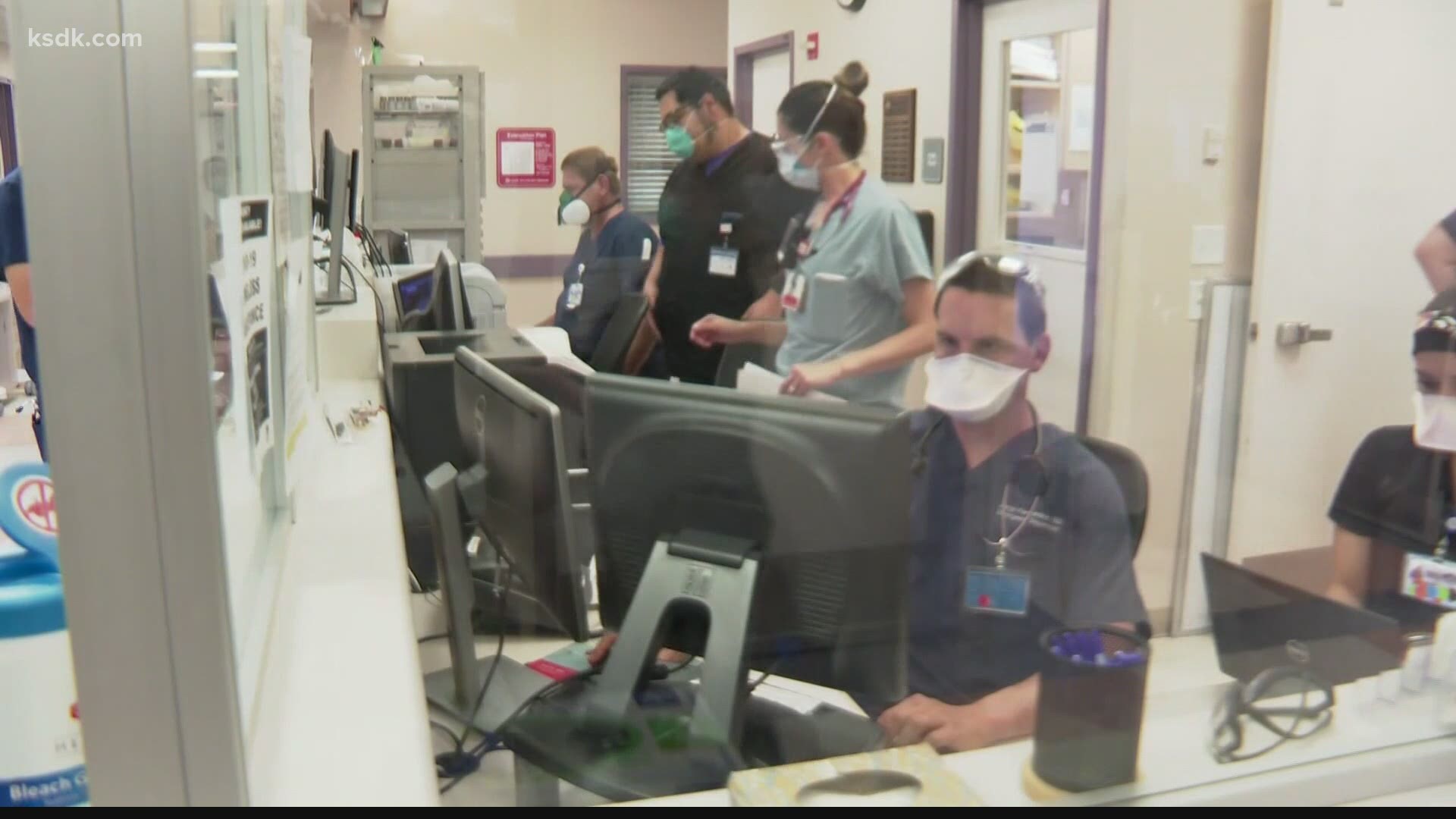ST. LOUIS — "It's been hard since March. It's a whole different world that we are living in now," St. Luke's Respiratory Therapist Stephanie Worley-Keenan said.
Her and many of her coworkers have been putting in 16 hour days to help the hospital get through the pandemic.
"We try not to if we can avoid it," she explained, "but staffing only goes so far when you have an increase in patients."
Not only is Worley-Keenan working longer, she is also working harder, "Everything we do has 10 extra steps. You can think about doing your daily tasks and add 10 things to it, plus wearing a welding mask."
For respiratory therapists like Worley-Keenan and nurses like Amanda DeGreef, the past few months have been challenging.
"It's kind of been up and down," DeGreef said, "I would say in March going into work was a bit scary, the unknown, not knowing what we were getting into."
DeGreef says it is a bit better now, at least knowing how best to care for patients and how to stay safe doing it.
Even though she loves her job, she is still very tired at the end of her emergency room shifts at Saint Louis University Hospital, "I just kind of want to come home and relax, watch TV, hang out with the family. Not do anything exciting."
Fatigue is what most health care workers are telling Washington University Psychiatrist Dr. Jessi Gold about in clinic.
Dr. Gold sees a spectrum of healthcare workers, from cleaners all the way up to administration and she is worried, "I think it's something they've never experienced before. I also think they're living in a culture that doesn't clap for them anymore and they feel really dejected. They feel really sad. They go into work every day and come out of work and go home and it's not fulfilling as much as it was. It doesn't feel like there's an end in sight. I feel like they don't feel like people are listening to them."
She says physicians don't have a great baseline when it comes to mental health, citing that between 300 to 400 die by suicide yearly.
Dr. Gold worries that the additional stressors of COVID-19 can worsen the struggle some practitioners are going through, "Like having to decide who gets certain equipment. If you don't have enough beds or enough ventilators and things like that."
She says health care workers are being exposed to trauma every day. Dr. Gold wants friends and family to continue to encouraging their loved ones in the healthcare field, "I think it's really important that they know that there are people who see them and care about them and value them and know that what they are doing is really important and don't take it for granted."

